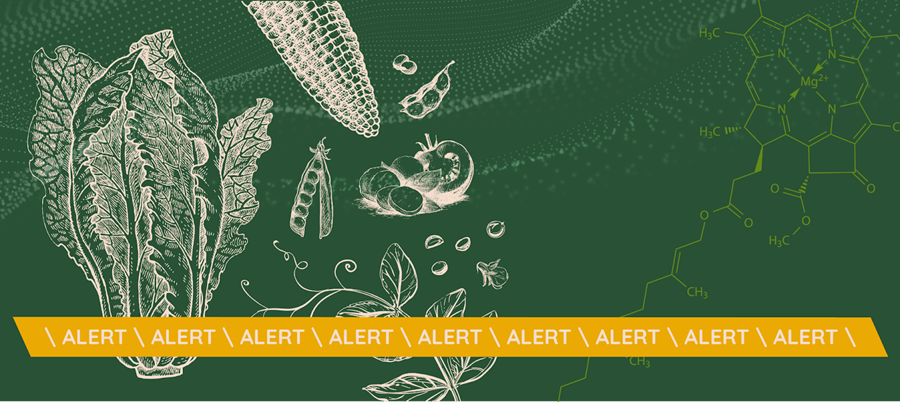Molecular Farming: Creating Peas that are Both Plant and Animal?
What is molecular farming? Technically, molecular farming is defined as the production of proteins and other metabolites that are considered valuable to medicine or industry in plants traditionally used in agriculture. Some have casually referred to molecular farming as synbio on steroids.
Thus, inasmuch as synbio (i.e., precision fermentation) is the genetic modification of microorganisms to exploit them for what they do naturally to create novel proteins, molecular farming is the genetic modification of plants to exploit them for what they do naturally to create novel proteins. These plants are different from traditional GMOs, which were modified to create new traits in crops, traits such as herbicide tolerance or insect resistance. Instead, through molecular farming, plants create new compounds and products.
These crops are often genetically modified to include animal DNA in order to create these novel proteins. The proteins can then be extracted from the plant once the crop is harvested for use in various applications (e.g., to make cheese). But the animal proteins can also be left in the crop for use in and to boost protein levels of the final end product. For example, think of a pea or soy crop that is modified to create meat proteins, then harvested so that the end product, the pea or soy isolate, has greater protein levels for use in a plant-based burger.
This technique is relatively new, but in the interest of transparency, below are some of the GMO developers working in this space.
Moolec Science
Located in the UK, Moolec Science (Moolec) is using molecular farming to produce animal proteins in a variety of plants, including safflower, soybean, and pea. The company’s first two products are chymosin (an enzyme used in cheesemaking) and the nutritional oil GLA (gamma-linolenic acid), both being produced in genetically modified safflower. The chymosin is marketed as Chymosin SPC, and the GLA is marketed as GLA Sonova®. The company is backed by Bioceres Crop Solutions, the developer of the genetically modified HB4 soy and HB4 wheat. The safflower was modified using a bovine protein to create the chymosin, and the GLA technology was sourced from Bioceres.
In June, Moolec announced a $504 million deal with the special purpose acquisition company (SPAC) LightJump Acquisition. The money will be used to accelerate the commercialization of both chymosin and GLA and expand the company’s R&D facilities. The company is now gearing up to create meat protein in soy and pea, which it plans to launch in late 2022 or early 2023. The product Poork+ features porcine proteins in soy; Beef+ features bovine proteins in pea. In addition, Moolec claims to have established contracts with seven food producers.
Pigmentum
Pigmentum is an Israeli startup that is genetically modifying Romaine lettuce to produce a variety of complex molecules, including proteins, pigments, and aromas. Under Pigmentum’s platform, the transgenic plants express the desired compounds only when an agrochemical is applied, and then the compounds are extracted post-harvest. Overall, the company plans to target the food, cosmetic, and pharmaceutical industries. Initial compounds being explored include anthocyanin, vanillin, and casein. The platform also allows for the repression of specific genetic traits.
Miruku
Miruku, a New Zealand-based biotech company founded in 2020, is using molecular farming to produce proteins, fats, and sugars in unidentified plants. The company’s initial work is focused on creating dairy proteins, and it hopes to have these proteins in the marketplace within 3 years.
Nobell Foods
Nobell Foods, which is located in San Francisco, is genetically modifying soy plants with animal DNA to produce casein, a protein present in cow’s milk, with the ultimate goal of creating mozzarella and cheddar cheese. The company plans to launch its first product by the end of 2022 or in early 2023.
Tiamat Sciences
Tiamat Sciences (Tiamat) is growing its genetically modified plants using vertical farming. The company’s first product will be animal-free growth factors for cell-cultured meat, for which the company has achieved GRAS status. In 2021, Tiamat announced that it had raised $3 million in seed funding. The funds are being used to construct a pilot facility in Durham, North Carolina.
Kyomei
Based in the U.K. and spun out of work done at the University of Oxford, the newly launched Kyomei is working to genetically engineer plants to produce meat proteins. The startup’s first effort is creating bovine myoglobin in plants.
Mozza Foods
Located in Los Angeles, California, the new startup Mozza Foods and its affiliate Lovely Dairy are working to produce dairy proteins in unidentified plants in order to make mozzarella. The company hopes to bring its cheese, branded as Lovely Cheese, to market in 2025.
The Non-GMO Project’s Standard defines all crops and products developed using biotechnology, including new gene-editing techniques, as GMOs. We share this information to further one of the Project’s primary goals of creating greater transparency in the supply chain, ensuring you have the information you need to make the best choices for you, your brand, and your family.
Please note that the information herein is for general informational purposes only and is based on the linked sources above.
The Non-GMO Project is a 510c3 nonprofit dedicated to protecting and promoting non-GMO alternatives. New GMO Alerts is supported by funding from readers like you. Donate today

